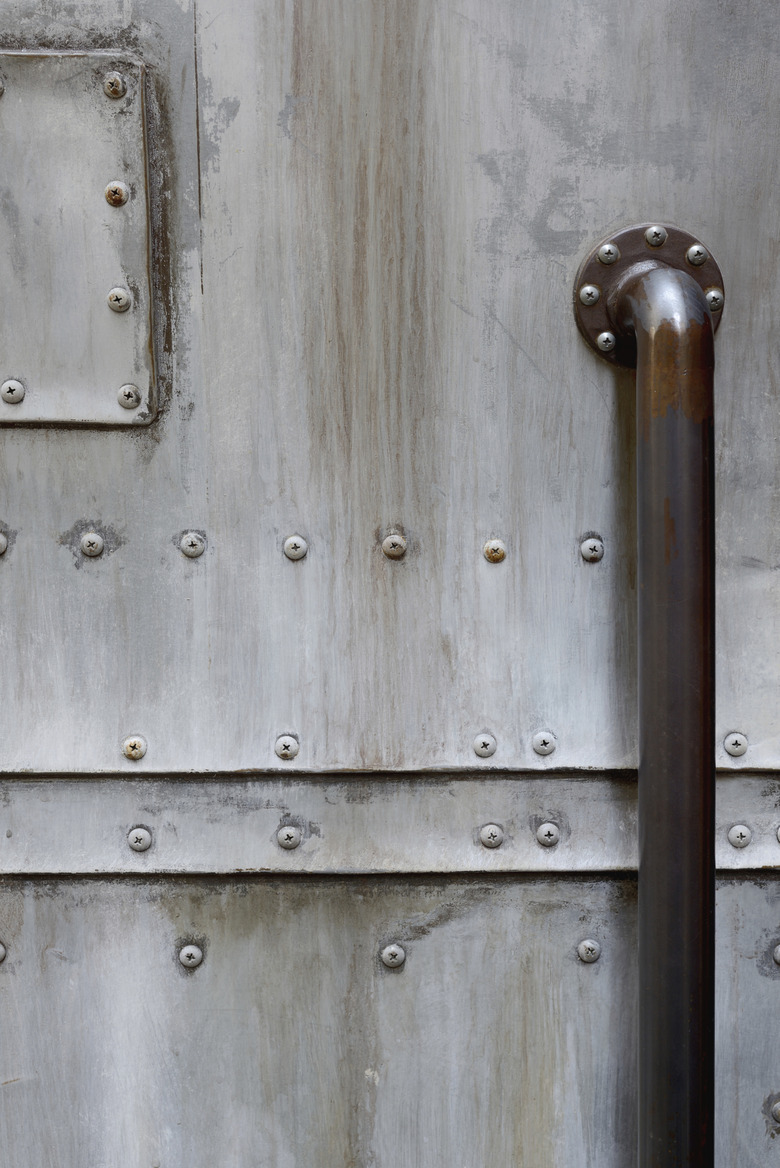Screws Compatible With Aluminum
Aluminum is a corrosion-resistant metal that holds up well in harsh environments. If you use the wrong kind of screws to fasten aluminum base metal, however, you may set in motion a chemical reaction that will quickly damage the aluminum. Understanding the process of galvanic corrosion and the ways you can avoid it will help you make the right fastener choices.
Galvanic Corrosion
Galvanic Corrosion
The process of galvanic corrosion occurs when two different metals are touching each other in the presence of an electrolyte, a fluid that allows the flow of electrons from one metal to the other. As the process continues, one of the metals will deteriorate quickly as its electrons flow steadily to the other metal. When you fasten aluminum using screws made from a different metal, especially in situations where the metal is exposed to salt water, galvanic corrosion may cause significant deterioration of the aluminum base metal.
Aluminum Screws
Aluminum Screws
Because galvanic corrosion happens when dissimilar metals come into contact with each other, the simplest way to prevent the process is to use screws made from the same metal as the metal you're fastening. Aluminum screws will not cause corrosion in aluminum base metal, even if the screws aren't plated or treated with any corrosion-resistant material.
Carbon Steel Screws
Carbon Steel Screws
Unplated steel screws will cause corrosion in aluminum in a wet environment. They'll rust quickly themselves, as well, so they're not a good choice for fastening aluminum. Galvanized steel screws, however, are plated with a corrosion-resistant coating, usually consisting of zinc, that is not nearly as reactive with aluminum. The zinc plating prevents the underlying steel from coming into contact with the aluminum, and the risk of corrosion of the aluminum is reduced significantly.
Stainless Steel Screws
Stainless Steel Screws
Stainless steel is an alloy of carbon steel that is, itself, resistant to corrosion. However, stainless steel is reactive with aluminum, and when a stainless steel screw is in contact with an aluminum base metal, the aluminum is likely to corrode. As is the case with carbon steel screws, a plated stainless steel screw is less likely to corrode aluminum; screws treated with a high-quality coating consisting of zinc and aluminum flakes are especially resistant to corrosion.
Brass Screws
Brass Screws
Brass is very reactive with aluminum, and brass screws will cause substantial corrosion of an aluminum base metal in a wet environment. The process of galvanic corrosion depends on the presence of an electrolyte, though, so in a totally dry environment the risk of corrosion is low, even if you use uncoated brass screws.
